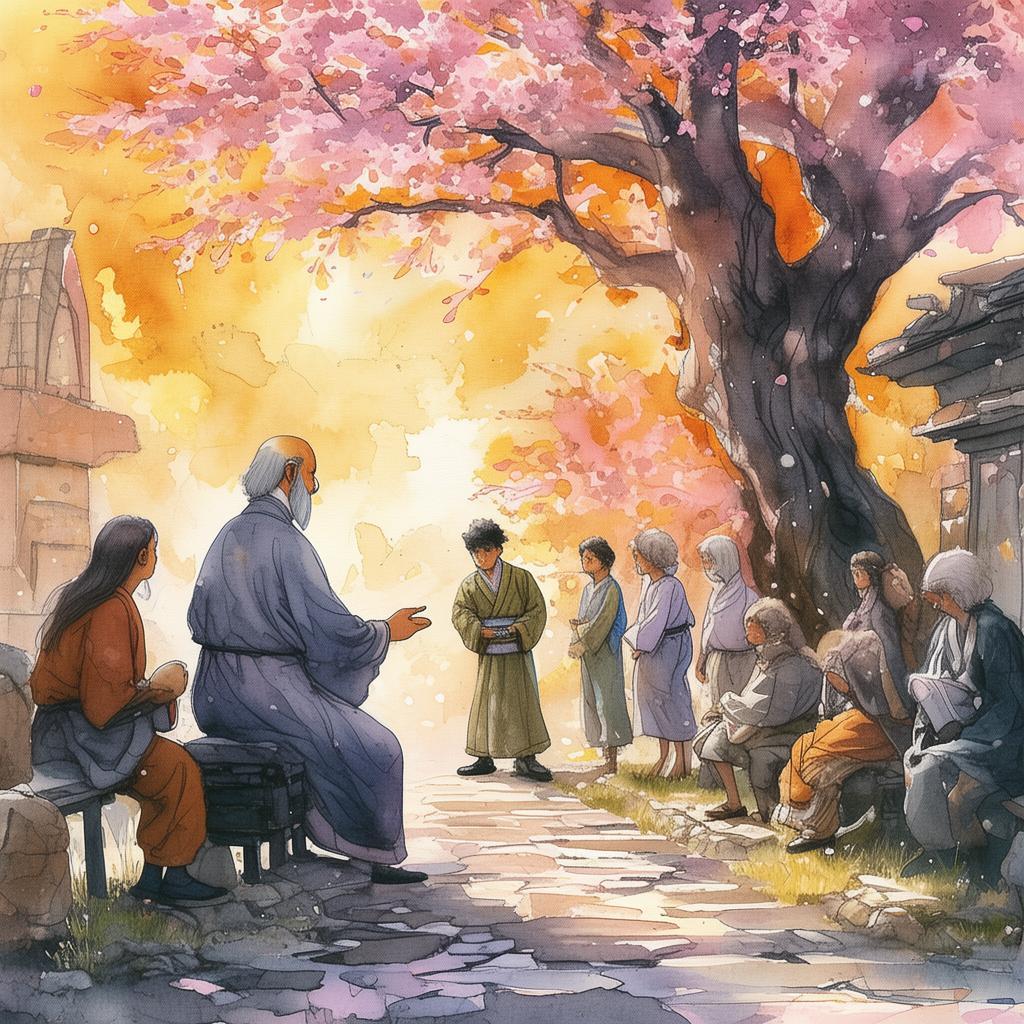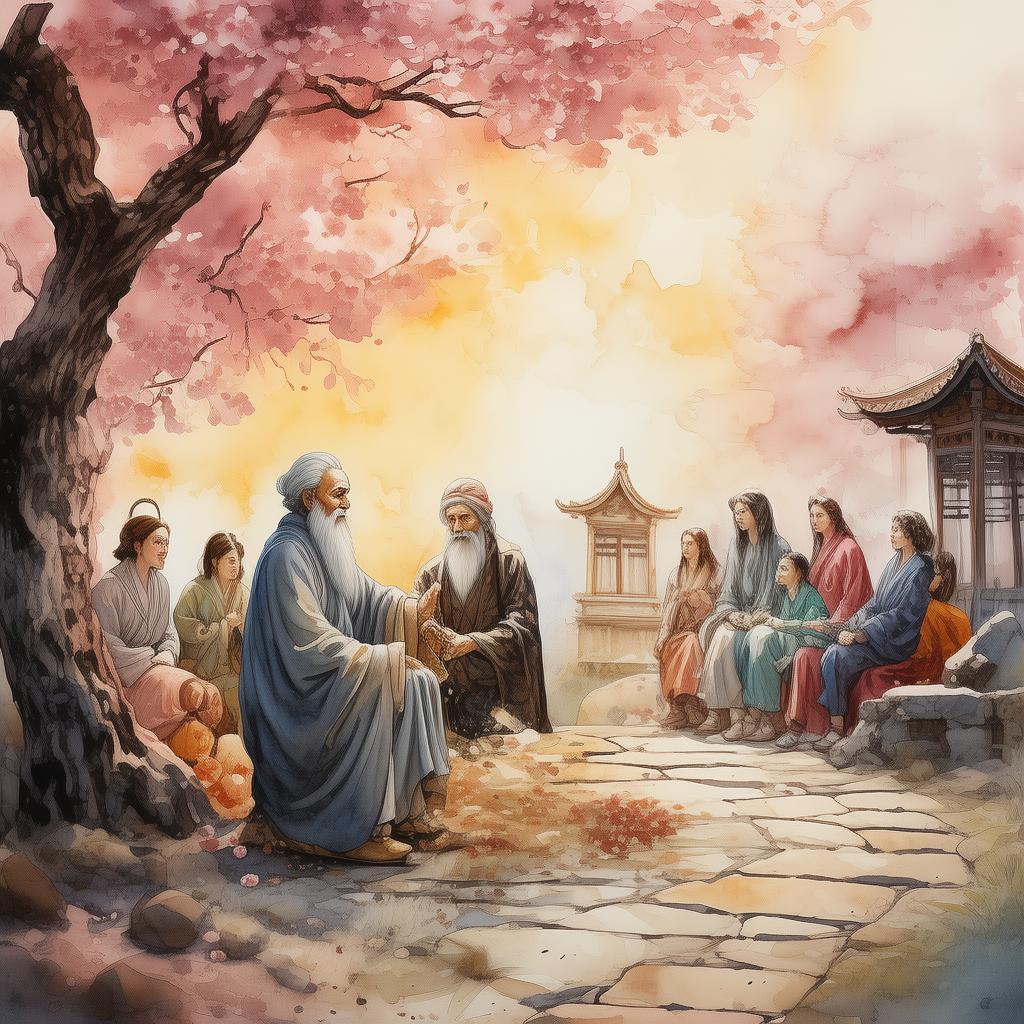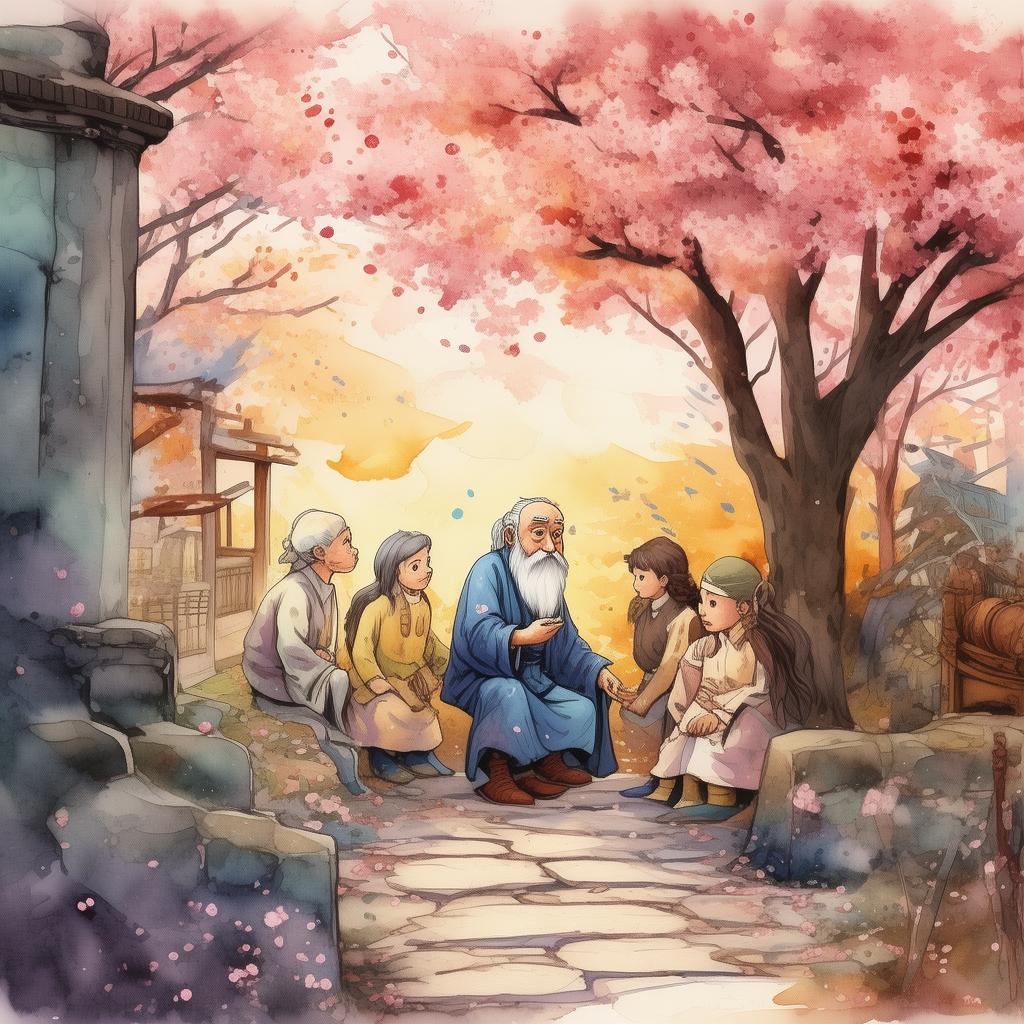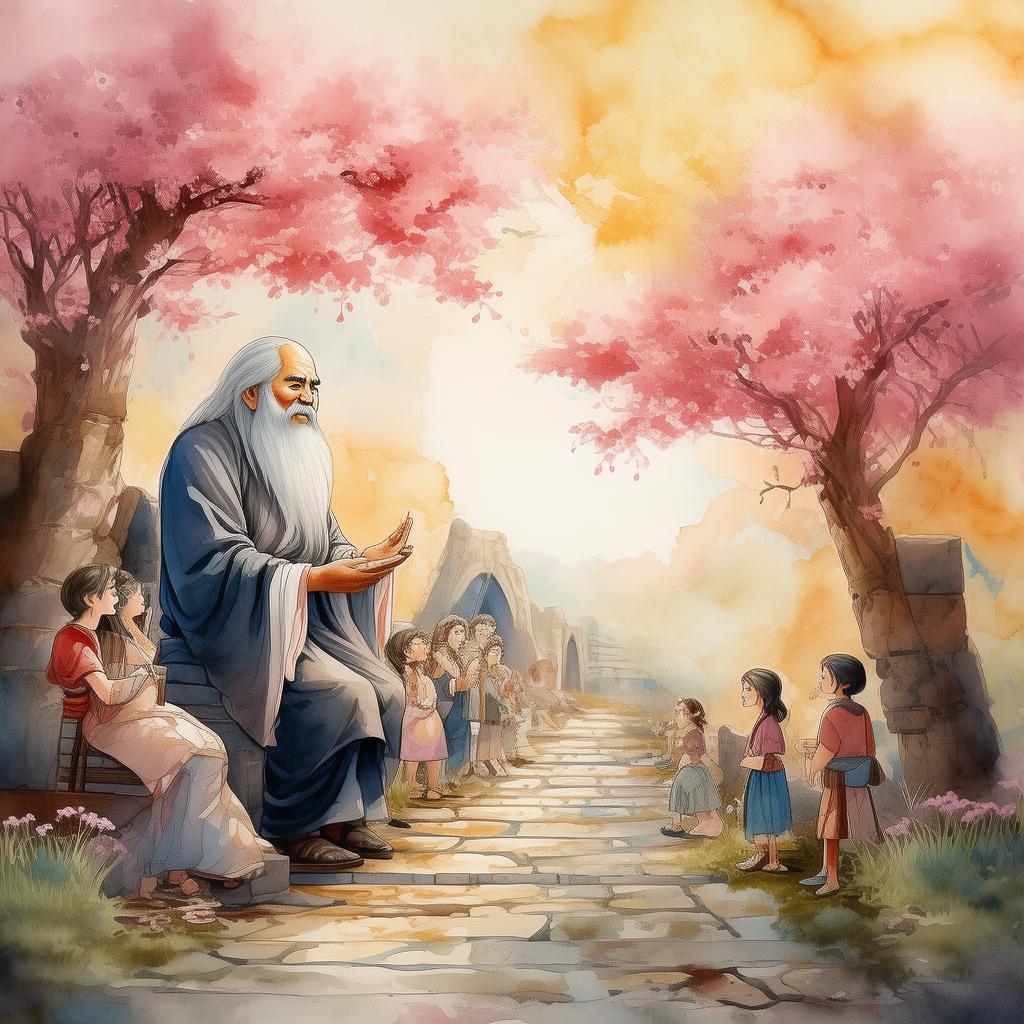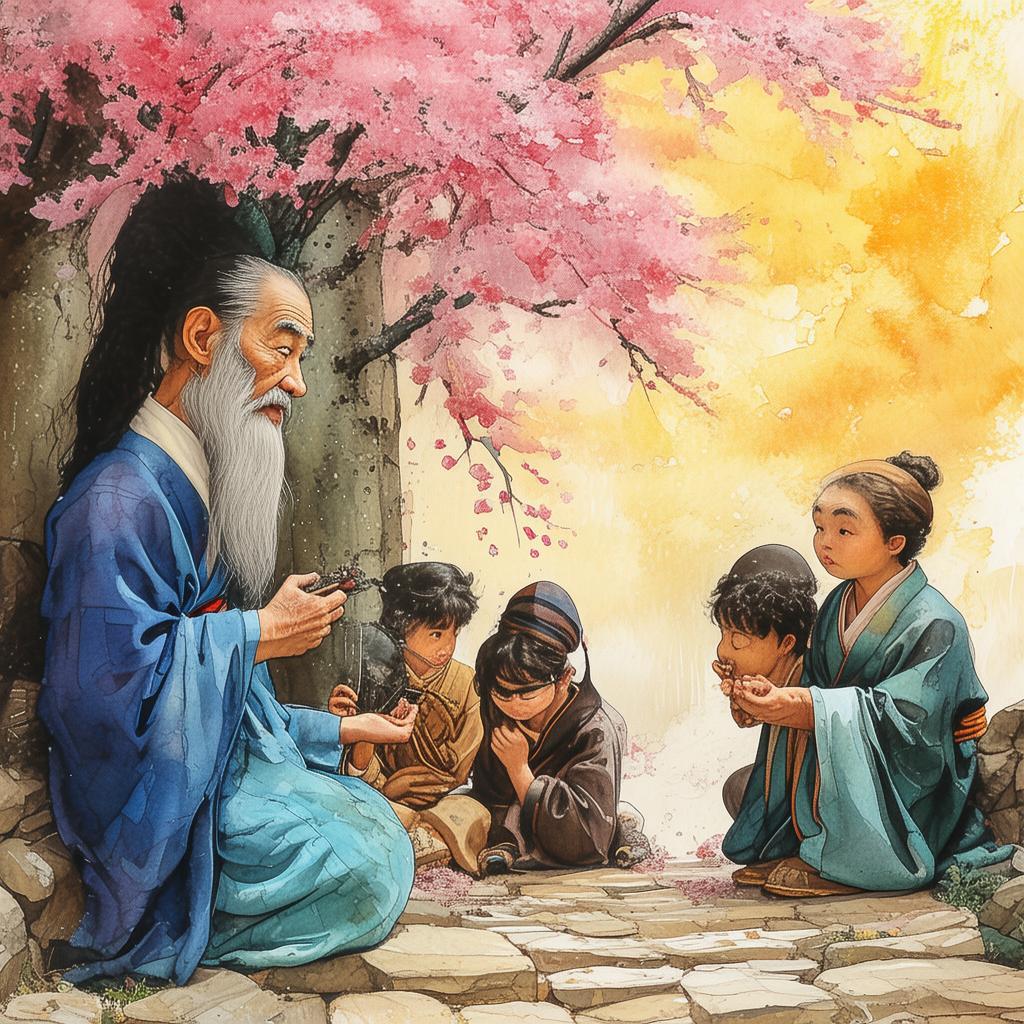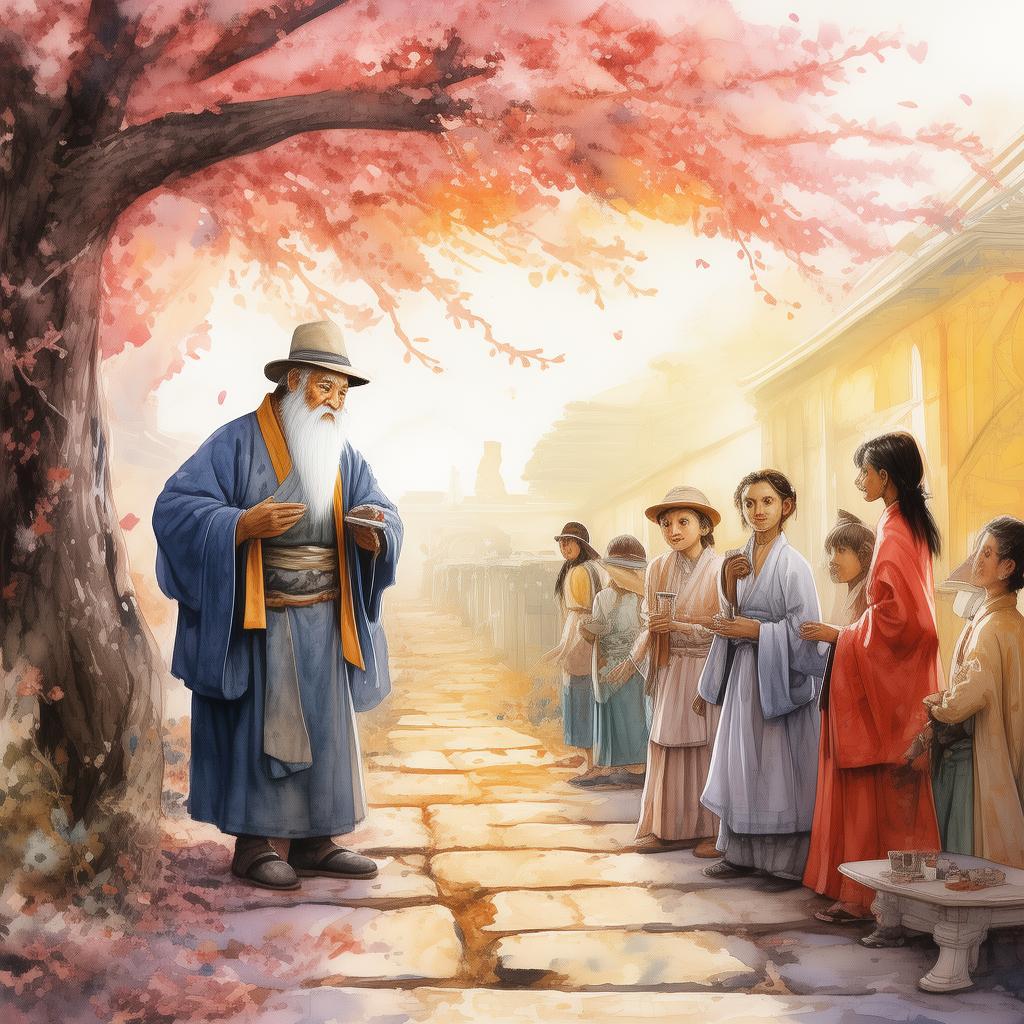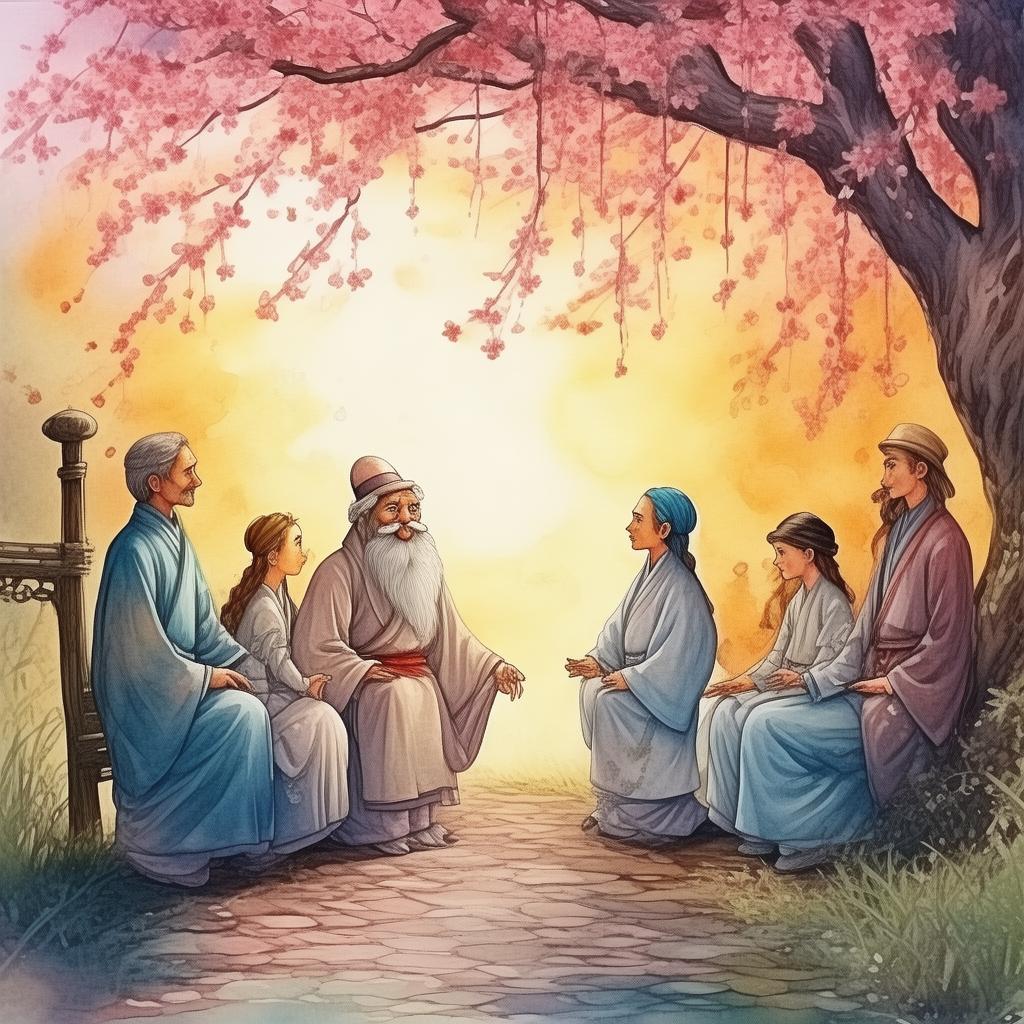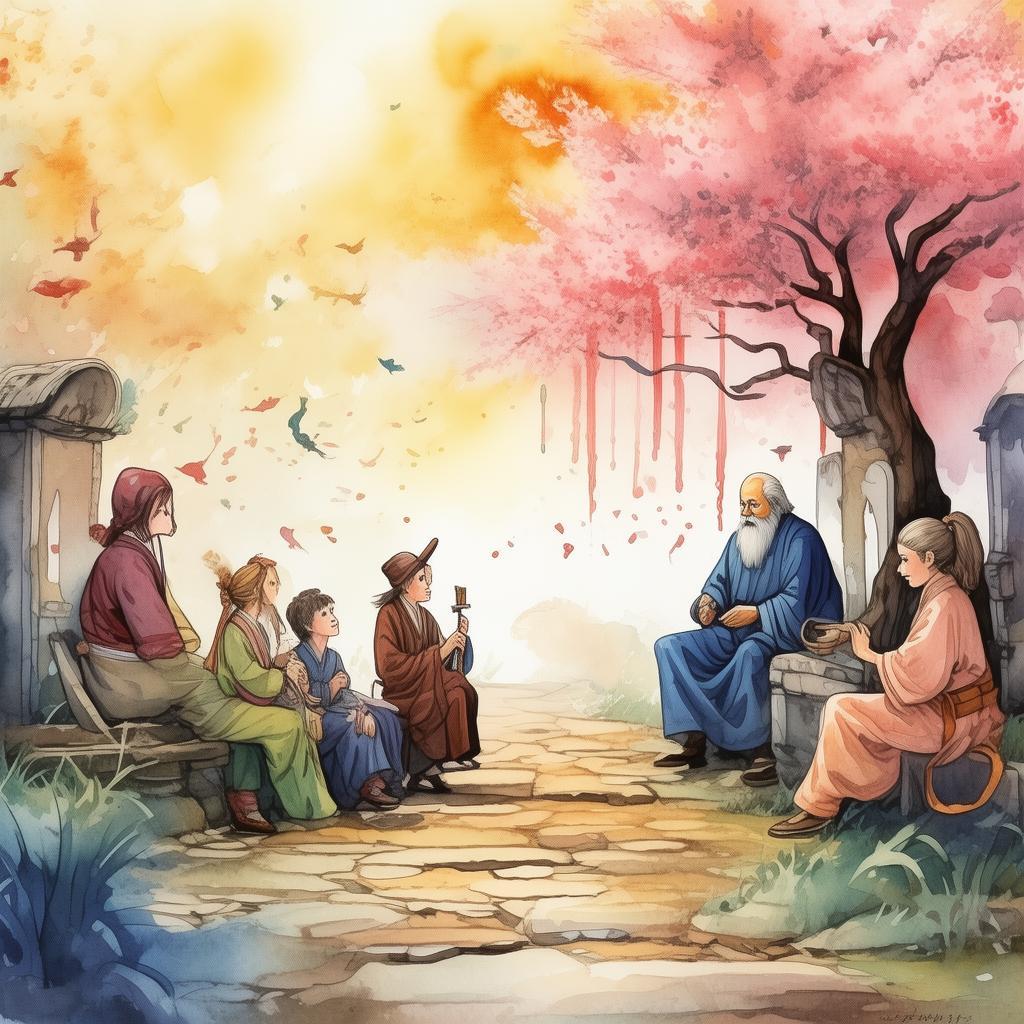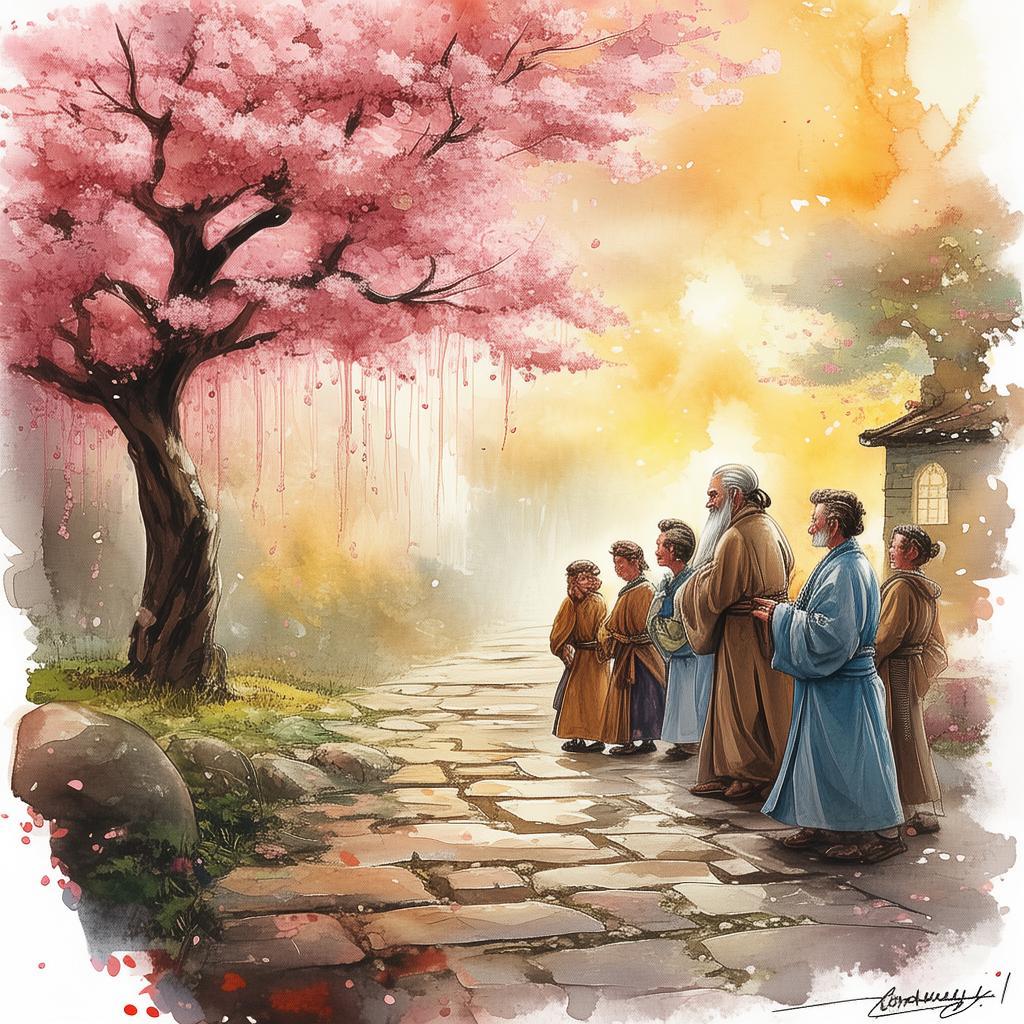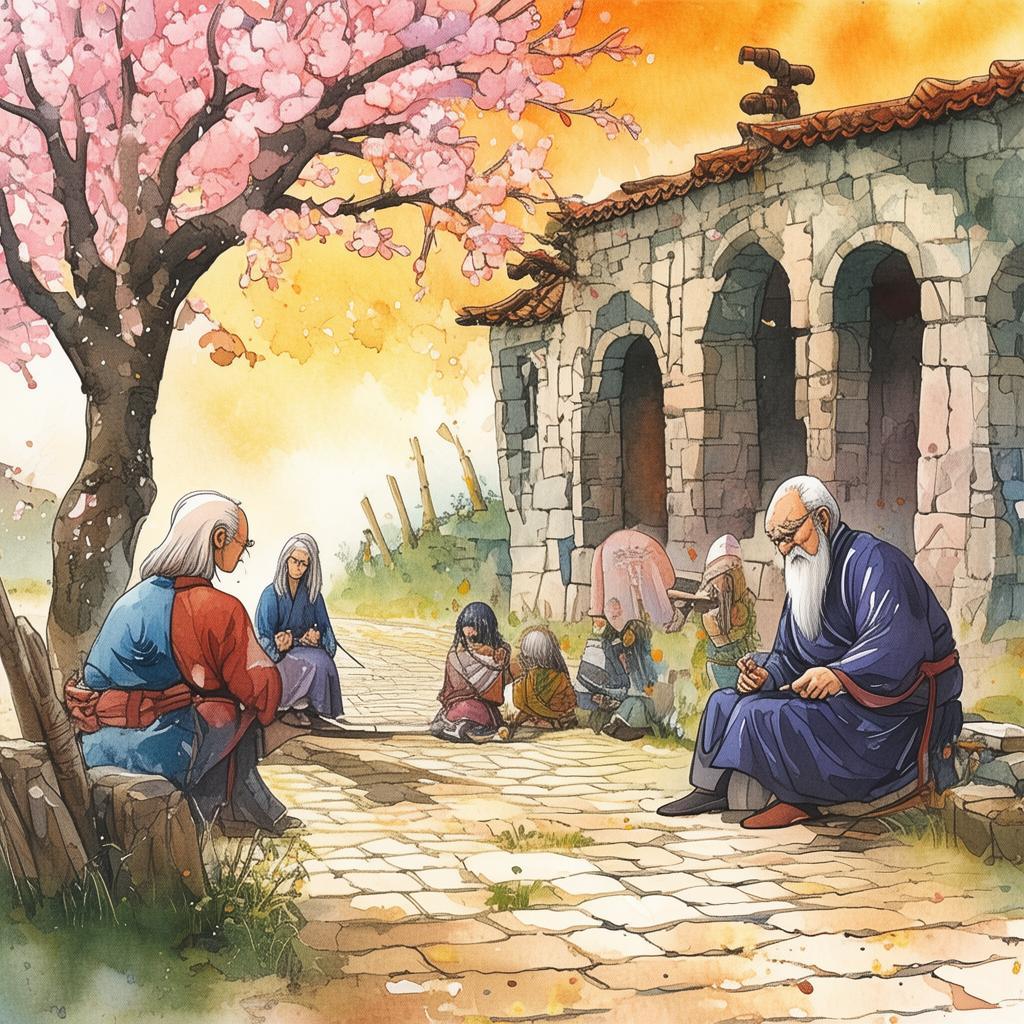The Illusion of the Dreamweaver
In the ancient land of the Tang Dynasty, there was a renowned artist named Ouyang Xiu, whose skill in painting was unparalleled. He was known not only for his brush but also for his ability to weave dreams into reality. His masterwork, "The Emperor's Dreamweaver," was a tapestry that could transport its beholder to any realm they could imagine.
The Emperor, a man of great ambition and power, was captivated by Ouyang's talent. He requested the Dreamweaver to create an illusion that would surpass all others, a dream that would make the emperor feel like a god among mortals.
Ouyang, ever the artist, agreed to the task. He spent months crafting the tapestry, using threads of silver and gold, and imbuing it with the essence of the emperor's desires. When the tapestry was finally complete, the emperor beheld it with awe. It was a vision of a utopian realm, where he was the all-powerful ruler, surrounded by subjects who adored him, and where the land was rich and bountiful.
The emperor spent hours in the dream, reveling in his imagined glory. He was so entranced that he began to believe that the dream was real. His advisors, however, noticed a change in the emperor's demeanor. He seemed distant, less interested in the affairs of state, and more concerned with the details of his dream.
Concerned for the stability of the empire, the advisors approached Ouyang, who revealed that the dream was, in fact, an illusion. "The dream is not reality, Your Majesty," Ouyang said. "It is a creation of your own mind, woven from threads of gold and silver. It is as real as the breath you take."
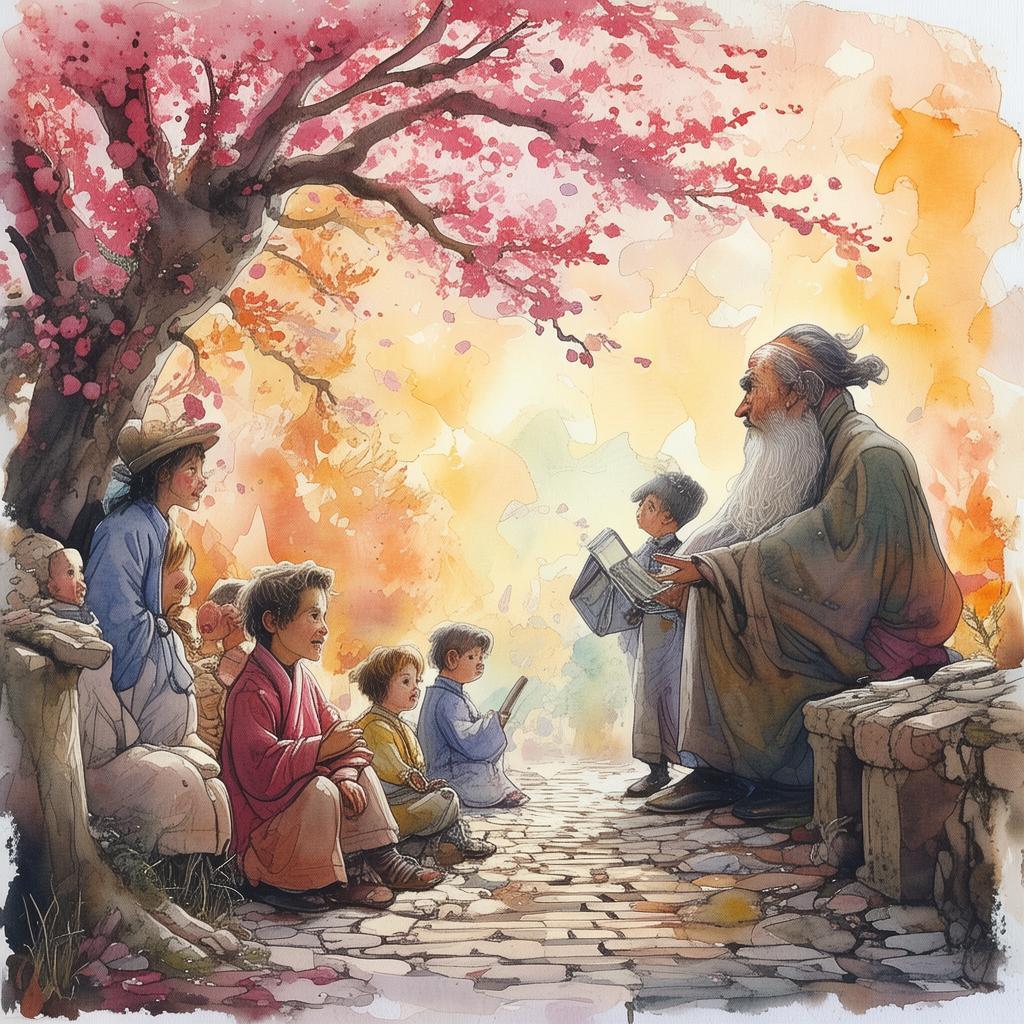
The emperor, though initially indignant, began to question the nature of his reality. He realized that his power, great as it was, was no match for the tapestry's magic. He decided to test the limits of his authority by attempting to alter the dream, to make it more real.
With a commanding voice, the emperor declared, "I will make this dream a reality!" But as he spoke, the dream began to unravel. The utopian landscape transformed into a barren wasteland, and the adoring subjects turned into faceless drones.
The emperor was shocked and frightened. He realized that his power was not in the dream but in the reality he had ignored. He had become so caught up in the illusion of his own grandeur that he had lost touch with the true essence of his reign.
Ouyang, seeing the emperor's despair, offered a final piece of wisdom. "Your Majesty, the true power lies not in the dreams you weave but in the actions you take. It is in the governance of your empire, in the care of your people, and in the truth you hold dear."
The emperor, humbled by the truth, returned to his throne. He vowed to be a better ruler, to focus on the reality of his kingdom, and to cherish the truth over the allure of illusion.
From that day forward, the emperor was known not for the grandeur of his dreams but for the wisdom of his rule. The tale of the Dreamweaver became a cautionary fable, a reminder that the power of reality is far greater than any illusion.
In the end, the emperor learned the hard way that the most powerful dreams are those that are grounded in truth, and that the greatest illusions are those we create for ourselves.
✨ Original Statement ✨
All articles published on this website (including but not limited to text, images, videos, and other content) are original or authorized for reposting and are protected by relevant laws. Without the explicit written permission of this website, no individual or organization may copy, modify, repost, or use the content for commercial purposes.
If you need to quote or cooperate, please contact this site for authorization. We reserve the right to pursue legal responsibility for any unauthorized use.
Hereby declared.
